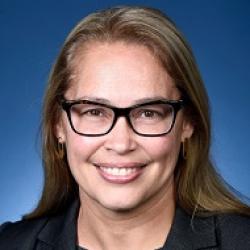The Women’s Resilience to Disasters Knowledge Hub
The importance of quality data and evidence to inform and transform resilience building.
Launching the pilot knowledge hub on gender-responsive disaster risk management and climate change resilience
At Australia’s Department of Foreign Affairs & Trade (DFAT) and UN Women we firmly believe that quality data and evidence have the power to inform and transform the way we build resilience in times of crisis. This is why UN Women and DFAT are proud to announce the launch of the Women’s Resilience to Disasters (WRD) Knowledge Hub, a platform that aims to support, through knowledge exchange, all those who are helping women and girls prepare for and adapt to disasters and climate change.
Part of the Women’s Resilience to Disasters programme, the WRD Knowledge Hub provides access to knowledge, tools and learning opportunities on gender-responsive disaster prevention, preparedness and recovery. It does so by: (i) bringing together existing evidence and expertise to make sure the community has the most up to date information to inform policy and programming; and (ii) initiating research and tool development to fill important gaps in the knowledge base.
We know that disasters affect women, girls, boys and men differently. Across the board — from life expectancy to education, health, violence, livelihoods and nutrition — women and girls are negatively and disproportionately impacted by disasters, climate change and other threats such as pandemics. Bringing together the network of people helping women and girls prepare and adapt to disasters and climate change is a critical step in addressing this complex issue.
The WRD Knowledge Hub is the first of its kind to gather all this in one place. Up until now, the information has been spread amongst different agencies, platforms and programmes, hindering our community’s ability to best support women and girls due to significant gaps in data, overlapping programmes and duplicate research. Building a hub where all the evidence is housed in one place creates a crucial space for knowledge exchange and brings together policymakers, practitioners and planners to coordinate their activities and maximise their impact.
Women and girls are at the core of the WRD Knowledge Hub design. They are powerful agents of change, often first responders and leaders in humanitarian response, yet too commonly portrayed as victims. Women and girls are essential stakeholders for helping communities recover and build back better after disaster has struck. We believe by equipping them with access to information, services, tools and opportunities — and by building the enabling environment that will allow them to best leverage their abilities and potential — women and girls can propose, design and lead innovative and transformative solutions to disaster resilience and build sustainable, secure and thriving communities.
We are therefore thrilled to share this new platform with you and hope it will prove useful for the disaster risk reduction community and beyond in supporting strong, quality programming and policy. The full WRD Knowledge Hub will be hosted on UN Women’s server, and will include resources from Prevention Web - the global knowledge sharing platform managed by the United Nations Office for Disaster Risk Reduction. The site has is being launched in two phases. The first phase, the pilot platform was launched on 13 October 2020, and served to introduce the Hub, provide knowledge and guidance on gender-responsive resilience building and develop the WRD community of practice The second phase, the full site hosted on the UN Women server, is scheduled for late 2021.
The full WRD Knowledge hub includes a comprehensive platform to understand and address the gender dimensions of disasters. Users are able to explore the latest research, guidance, articles and tools to best inform gender-responsive programming, engage with the passionate community of disaster risk reduction policymakers, practitioners and planners, and consult experts from around the world on gender-responsive implementation.
About the authors:
Ms Guivarra is a senior career officer with the Department of Foreign Affairs and Trade where she served most recently as Australia’s Ambassador to the Kingdom of Spain, Andorra and Equatorial Guinea. In this role Ms Guivarra became Australia’s first female indigenous Ambassador.
Prior to that appointment she served as Australia’s lead services negotiator for the Regional Comprehensive Economic Partnership (RCEP) while she was Assistant Secretary of the South East Asia Investment & Services Branch. She has multilateral experience, serving as the Counsellor (Agriculture) in the World Trade Organisation.
Ms. Åsa Regnér was appointed Assistant Secretary-General of the United Nations and Deputy Executive Director of UN Women in March 2018.
Ms. Regnér served since 2014 as Minister for Children, the Elderly and Gender Equality of Sweden, where her focus was on concrete results in the implementation of Swedish gender equality policies as well as a shift towards prevention of violence against women and the involvement of men and boys in gender equality work.
She has extensive experience in the area of gender equality and women’s empowerment, having held various leadership positions in government, Non-Governmental Organizations (NGOs) and the United Nations.

